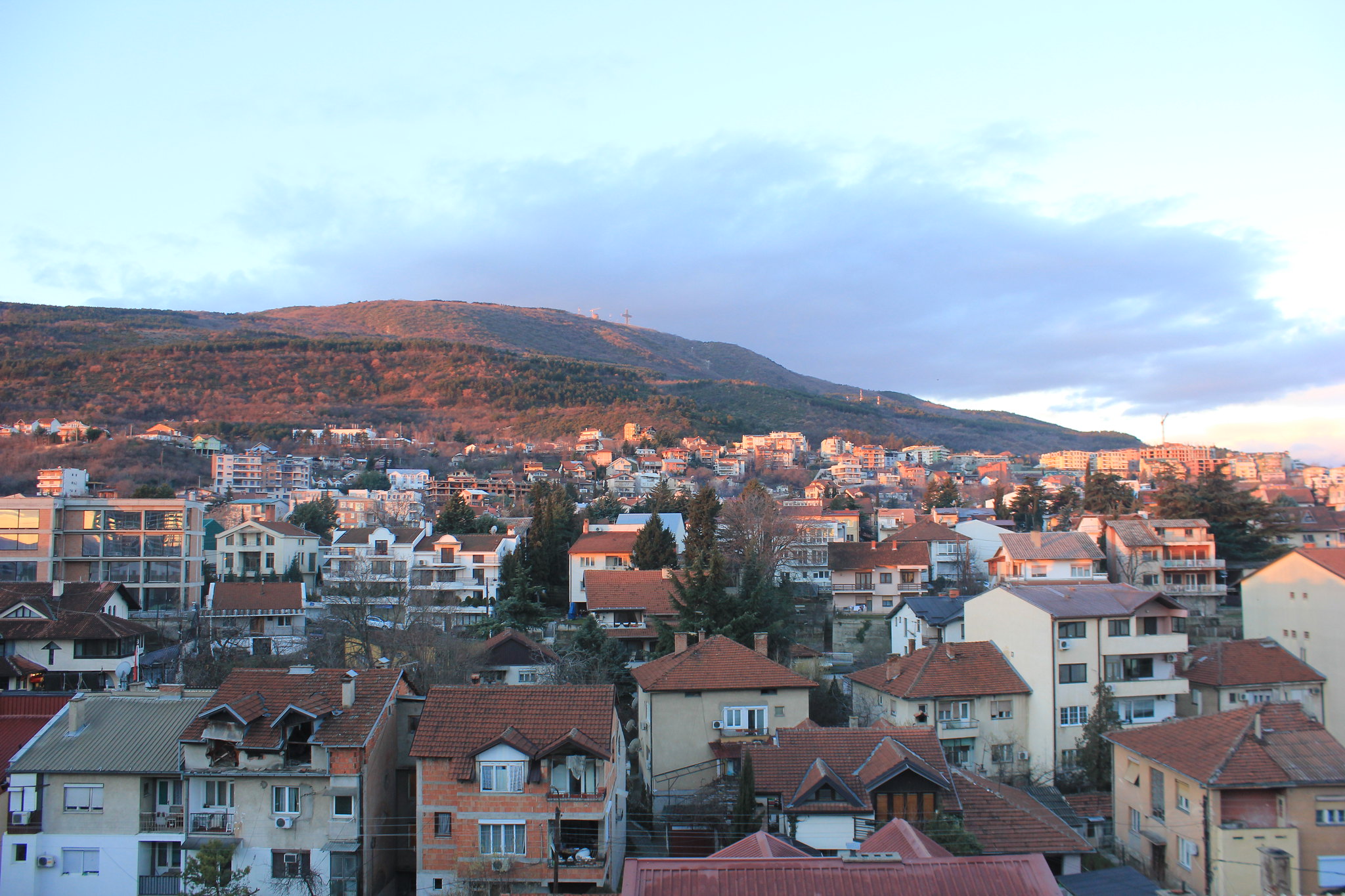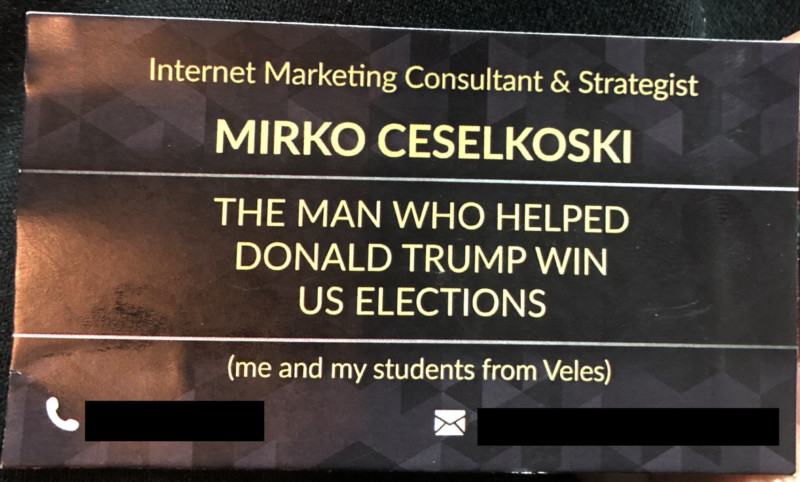Sign up for The Media Today, CJR’s daily newsletter.
About a month ago, a friend who works as the social media expert for a sports brand told me about an online Facebook marketing course he wanted to sign up for. He had just met with the course creator, was in awe of his understanding of the platform, and spoke of the success and money that he felt was awaiting him if he took the course. The best part: he could call the course creator whenever he had an issue.
He pulled out the guy’s business card: Mirko Ceselkoski, then bold text: “THE MAN WHO HELPED DONALD TRUMP WIN US ELECTIONS.” There was a caveat in smaller letters: (me and my students from Veles).”
“He told me politicians from around the world were reaching out to him to help them with their campaigns” my friend said.
I looked Ceselkoski up. His mother was a university engineering professor, and he sold his first website, about the NBA, when he was 17. He had grown notorious in recent years as a self-proclaimed internet professor who had once lectured a group of Macedonian teenagers from the city of Veles. It was those teenagers that produced outlandish fake headlines that millions of Americans saw in the months leading up to the 2016 US presidential election. Ceselkoski had since been interviewed by international media outlets, where he talked about the ethics of creating fake news (“not ethical, but not illegal”), the financial incentives of the practice (“some students were making $100,000 a month”), and alleged Russian meddling (“nonsense”).
A few days later, I met him in a dimly lit coffee shop in Skopje, the capital of North Macedonia. In person, Ceselkoski is toned down. He has small, lively eyes hidden behind thick-rimmed spectacles, a salt-and-pepper goatee, and a receding hairline. He placed two cell phones on the table. and explained that one was for his American clients. He joked that it was weird for him to speak to a journalist in Macedonian, as he has certain phrases memorized in English.
The “Facebook Marketing University,” as he calls it, employs seven people full-time, seven online full-time, and five freelancers. His website says it is “The Ultimate Guide of Building a Huge and Viral FB page.” By now Ceselkoski says he has sold 5,500 copies in English, and 2,000 copies in Macedonian. He promises that in six months Macedonians will be making $1000 a month (the average monthly salary in Macedonia is less than $450).
He also offers services for celebrities—he features photos of on Tom Hanks and George Clooney on his site, though neither is a client. When a celebrity or agent signs up, members of Ceselkoski’s team write articles to drive traffic to the celebrity’s IMDb page.
I asked him whether those articles were true. “More or less” he says as a smile spread across his face. I asked him about the “less.” “Attending charity events that they may or may not have gone to” Ceselkoski says. “Writing about money they may or may not have donated.” When the goal is simply to drive traffic to an entertainer’s page, they use unorthodox methods, like advertising on porn or torrent sites. Among his clients, Ceselkoski counts a Hollywood producer as a client, and up until recently, the Swedish band Rednex, who had a hit in the ’90s with the Euro-dance/country crossover, “Cotton-Eye Joe.”
And, of course, politicians. “I have had four campaigns contact me,” he said, with unrelenting pride—two were from Asia, one from North America, and one from Europe, according to Ceselkoski.
Facebook and Google have made it impossible to run and monetize fake news operations from pages in Macedonia or from the Balkans and beyond. This has definitely stunted Ceselkoski’s operation. “What’s the point of having a Facebook page if you can’t make money out of it?” he says.
Instead, he advocates for politicians getting in touch with their followers directly—through newsletters, for instance. “Nobody can control you over what you’re writing there,” Ceselkoski says.
I questioned whether any candidate would directly spread misinformation to their potential voters. “Not necessarily fake,” Ceselkoski says. “You’ll do real official marketing and when you combine several things, some untrue, everything else completely true, it can work.”
Meanwhile, Macedonia has been attempting to crack down on the worst of fake news. Marina Tuneva, executive director of the country’s Council of Media Ethics, says there are legal repercussions when the fake news promotes hate speech or other acts punishable by the law. Otherwise, there is no specific legal regulation. “We have looked at that issue several times but we haven’t noticed a permanent mechanism that has addressed and solved that problem,” Tuneva says.
Mile Boshnjakovski, a spokesman for the Government of the Republic of North Macedonia echoes Tuneva’s statements. But, he notes, it was a step forward for the government that the ones who are promoting hate speech on social platforms, some of whom do it via fake news portals, are being held accountable. “We have 11 cases from last year and two cases from this year of spreading hate speech via social media,” Boshnjakovski says.
For now, Ceselkoski says that the majority of his business comes not from politicians, but from his work with US trucking companies. According to him they do digital marketing, make videos, professional photographs, find drivers, and run Facebook campaigns for American clients in the transportation industry. “There are no surprises here, everything is legal.”
He refused to disclose any of the countries, so I asked if any of them were known candidates. He says big enough to never communicate with him directly. “They don’t want to be brought in a situation where…” he stopped and looked for a way to measure his words. “They use a middleman.”
Has America ever needed a media defender more than now? Help us by joining CJR today.




